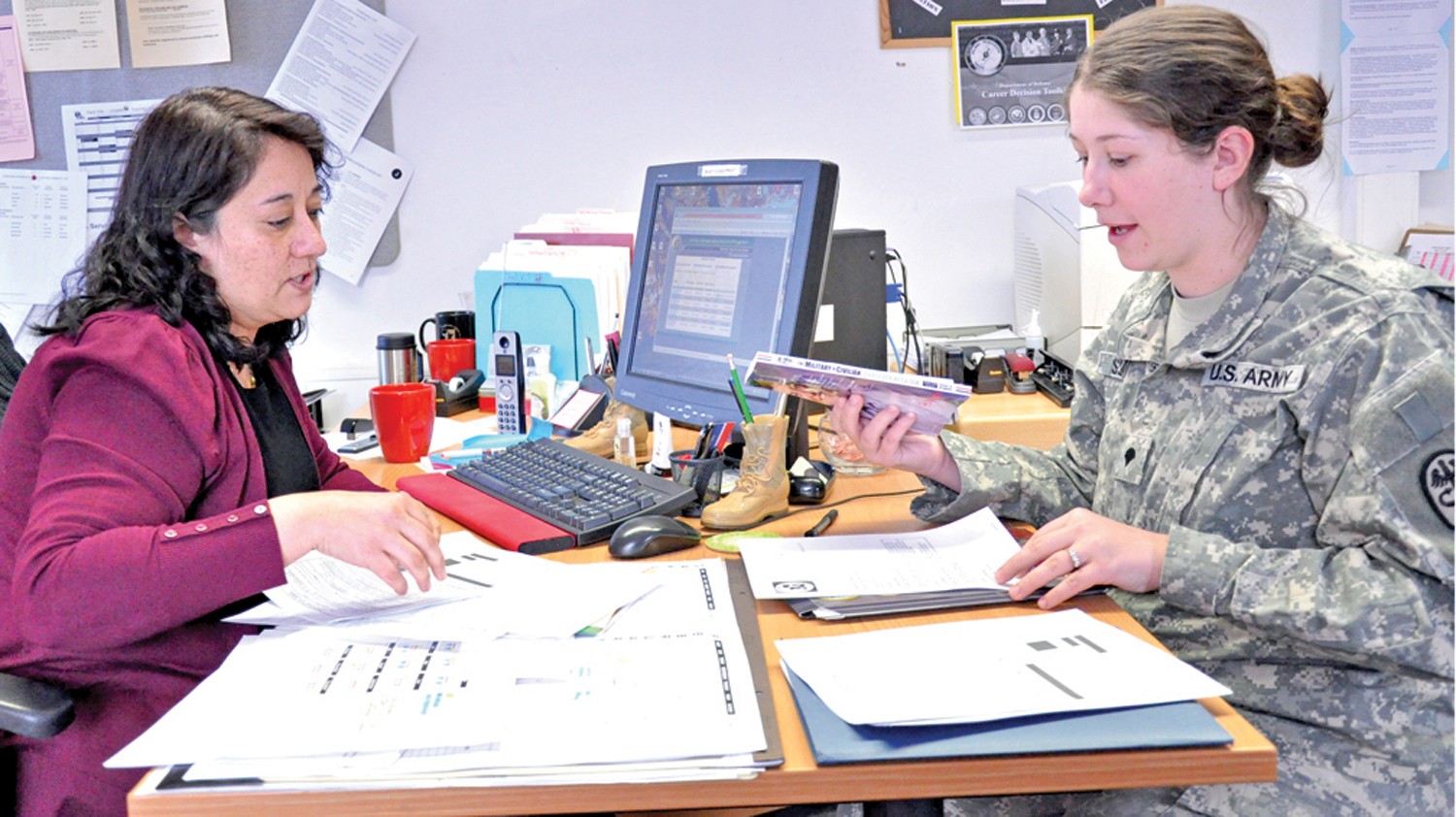WIESBADEN, Germany - Transitioning into the next phase of life can bring about feelings of uncertainty. And that uncertainty intensifies when one doesn't have a plan.
Wiesbaden service members phasing into a new chapter can get assistance from the Army Career and Alumni Program to make the move easier.
"One of our main goals is to educate transitioning personnel with regards to their benefits," said Mag-e Freeman, career counselor, who added that ACAP provides pre-separation counseling and a wide range of transition and job search information and referral services. "We want to make sure (service members and families) know what's available to them."
"We're an informational service really," said Laura Holtz, career adviser. "We like to give people information about the whole job search process."
Soldiers with more than 180 days of active-duty service usually begin the ACAP process one year before separation or two years before retirement.
Though the program primarily markets to those in transition, counselors welcome interest from anyone who may be contemplating a change of course.
"Soldiers think that once they come ... they have to get out because they've already gone to ACAP," said Freeman, debunking the myth that a single visit initiates retirement or separation actions. "People change their minds constantly. Up until the day before they ETS or retire people will change their mind. Their record will go away or remain active as long as it needs to be."
The process comprises a mandatory pre-separation counseling session and workshops that include a two-and-a-half-day Department of Labor Transition Assistance Program Employment workshop, Veteran Affairs Benefits Briefing and VA Disabled Transition Assistance.
"During (pre-separation counseling) we explain to them what the next steps are going to be," said Freeman, reiterating that ACAP is a process where users are advantaged more when they take the recommended time to access program offerings. "Then it's the TAP workshop, which covers everything from how to start searching for a job to when and where ... mock interviews complete with how to dress ... and salary negotiation."
Additionally, monthly workshops are offered as one-on-one or group sessions for advanced and federal resume writing and interviewing techniques. Participants are encouraged to bring some form of a resume. Even if one has made plans before beginning the ACAP process, advisers remind that participation is congressionally directed.
"Once you get to that 90-day window you are supposed to be in ACAP no matter what," said Holtz.
ACAP counselors have current information about matters such as the Montgomery GI Bill, VA, knowledge of where to search for employment and more. "We always encourage people to call us to see what's going on," said Freeman. "We're not the subject matter experts, but we do know where to send people when they have questions."
But don't wait too long. More things are possible with time.
"It's a huge disadvantage for (last-minute users), because they don't have time to take advantage of the information we give them," said Freeman. Also ACAP is not exclusive to active-duty Soldiers.
"And we also help family members. ... They are welcome to go to the TAP workshop and the benefits brief," said Holtz who added that veterans, retirees and Department of Defense civilians who are losing employment as a result of reduction in force are authorized to use the program, as well as dependents, 18 years or older, seeking help with college essay writing and job applications.
Contact the Army Career and Alumni Program for more information about availability or to schedule an appointment with a career counselor at mil 337-5709/5944 or civ (0611) 705-5709/5944.


Social Sharing